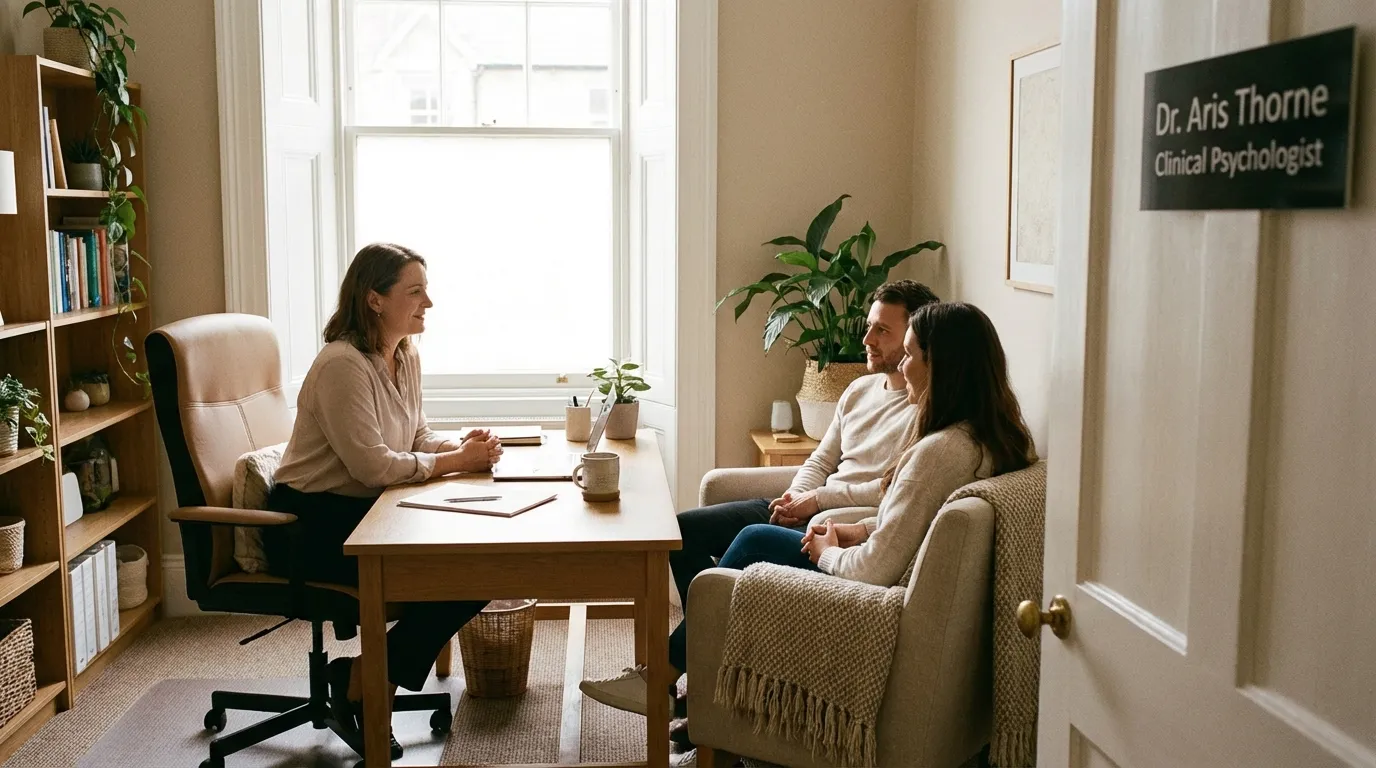Understanding the Link Between ADHD and Emotional Dysregulation
Living with ADHD often means navigating a world that moves too fast and too unpredictably. We experience heightened sensitivity to criticism, frustration, and even joy, making emotional responses feel intense and difficult to control. That is to say, emotional dysregulation isn’t a separate condition—it’s deeply tied to how ADHD works.
Emotions can surge and crash quickly, making it hard to maintain steady relationships or feel emotionally safe. However, emotional dysregulation is not a personal flaw. It’s a neurological feature of ADHD that we can learn to manage. With the right support and insight, we begin to understand that therapy isn’t just about control—it’s about acceptance and skill-building.
How Therapy Helps Us Build Emotional Resilience
Emotional dysregulation can lead to impulsive outbursts, overwhelming guilt, or deep sadness that seems to come out of nowhere. Therefore, working with a trained therapist can help us identify our emotional triggers. This is the first step in learning how to respond instead of react.
At WJW Counselling, we explore emotional awareness through techniques like CBT and mindfulness strategies. In other words, we don’t just talk—we learn to observe, pause, and engage differently. Therapy becomes a space where we can practice new habits and challenge negative self-beliefs tied to emotional struggles.
Tailored ADHD Counselling for Emotional Support
Not all therapy approaches are designed for ADHD brains. That’s why specialized support is essential. We need a plan that reflects how we think, feel, and process the world. Moreover, we need a therapist who understands that quick reactions or zoning out are not intentional—they’re symptoms.
Through dedicated ADHD counselling support, we focus on grounding techniques, emotional regulation skills, and executive function tools. Above all, our sessions aim to reconnect us with our values and emotional patterns. This empowers us to rebuild self-trust, one conversation at a time.
Practical Coping Skills to Regulate Emotions
Emotional dysregulation often leaves us feeling stuck in the same emotional loops. Consequently, therapy provides hands-on tools to manage those cycles. We learn how to identify patterns, name emotions, and calm our nervous system when it’s overstimulated.
For instance, strategies like emotion journaling or body scans help us notice internal shifts before they explode externally. These small shifts make a big impact. In addition, we build routines that reinforce emotional stability, especially during stressful events. Emotional regulation isn’t about stopping feelings—it’s about safely riding the waves.
Creating Emotional Safety in Relationships
ADHD can challenge how we relate to others. Intense emotional swings may lead to misunderstandings or feelings of being “too much.” However, therapy helps us build language around our needs and experiences, making connection easier and healthier.
As we develop emotional insight, we become more attuned to the impact our moods have on loved ones. In the same vein, they become better equipped to support us. Couples or family counselling can be part of this journey, creating a shared understanding and reducing blame. The result is stronger, more compassionate relationships.
Why It’s Not Just About Focus or Productivity
Most people think ADHD is just about attention span. But for many of us, the emotional toll is heavier than any checklist we can’t complete. That’s why emotional support is essential in any ADHD treatment plan. Further, when our emotions are understood and respected, everything else—organization, memory, motivation—follows.
WJW Counselling takes a full-spectrum approach to healing. We can’t always control how our brains are wired, but we can change how we respond. To clarify, this means addressing emotions as central—not secondary—to our mental health care. If you’re ready to start, you can book a session today.
Reaching Out for ADHD Support
Recognizing emotional dysregulation is the first step toward change. Likewise, reaching out for help is a courageous move toward better mental health. WJW Counselling offers therapy that meets us where we are and helps us move forward.
If your emotions feel too big, too fast, or too intense, you’re not alone—and you’re not broken. Therapy gives us a way to understand and reshape these feelings. You can find more information about our services and how to get started by visiting our professional counselling services.
FAQs About ADHD and Emotional Dysregulation
1. What does emotional dysregulation feel like with ADHD?
It often feels like your emotions are always on high volume. Small situations may trigger big reactions, and it can be hard to calm down once you’re upset.
2. Can therapy really help with emotional swings?
Yes, therapy helps us understand our patterns and build new strategies for regulating feelings. It’s about changing our relationship with emotion, not suppressing it.
3. Is emotional dysregulation more common in adults or children with ADHD?
Both can experience it, but adults often struggle more silently because they’ve internalized negative messages over time. Therapy can help unpack these experiences.
4. How soon will I notice changes from therapy?
Some people feel better after a few sessions, while others take longer. Progress depends on consistency and the techniques used during therapy.
5. What kind of therapist should I look for?
Look for someone experienced in ADHD and emotional regulation. WJW Counselling has therapists who specialize in both, offering support that’s informed and compassionate.
You can read more about getting a professional ADHD assessment in Edmonton by visiting Post of the Day.



